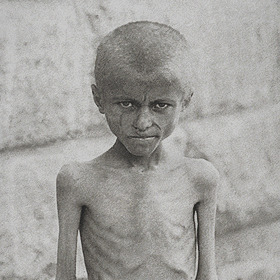… / Geschiedenis / Berichtgeving in de internationale pers / Turks Depopulate Towns Of Armenia
The New York Times, 27 augustus 1915
Bron: The New York Times Archive
Turks Depopulate Towns Of Armenia
Traveler Reports Christians of Great Territory Have Been Driven from Homes
600,000 STARVING ON ROAD
Adds That More Than 100,000 Greeks Have Deported from the Mediterranean Coast
A traveler who has just arrived in New York from Turkey, where he was long a resident, told The Times yesterday of conditions as he found them in Constantinople, and of the wholesale deportations of Armenians from the interior districts of Asiatic Turkey. For reasons that are valid the narrator does not wish to have his name published, but The Times can vouch for his qualifications as an observer, especially of conditions in the Armenian district.
Leaving Sivas, where he spent some time, he proceeded to Constantinople and thence to Athens, from which port he sailed for New York. When in Constantinople about four weeks ago, he said, the tension was pretty high. In official circles it was maintained that everything was proceeding smoothly for the Turks, but there were many individuals, he said, who expressed discouragement. These put little faith in Germany's motives in aiding Turkey, and some even charged Enver Pasha with having sold out to Germany for money.
German doctors and nurses told him that long after beginning or hostilities Germany had got more than 2,000 officers into Turkey through Rumania, disguised as surgeons and Red Cross helpers. The ruses of false bottoms in care and the labeling of monitions as other commodities to smuggle supplies through Rumania were also the subjects of boast. From what he observed in Constantinople and from the dispatches since leaving there, he judged the Allies were about through with the Gallipoli end of the campaign and ready to chase the Turks out of Europe. In case it should become necessary to evacuate Constantinople he said Konia would become the new capital, and that he understood some of the records had already been removed there.
“The Armenians of the interior,” he said, “have been deported in the direction of Mosul. At the time I left Sivas two-thirds of them had gone from the city, including all Protestants, teachers, and pupils. According to my best knowledge and opinion, with the exception of Armenian soldiers and prisoners, and a very few exceptions, who for various reasons were necessary to the Government, all Armenians are gone from Sivas. According to what I consider good authority, I believe it to be true that the entire Armenian population from Erzerum to and including Gemereh, near Cesarea, and from Samsoun to and including Harpoot has been deported. There is also a movement in the central field which had not become general, but will doubtless become so. More than 100,000 Greeks from the Marmora and Mediterranean coast have been deported.
“We heard many rumors of massacres, but I have no evidence on the subject. To my knowledge no general massacres have occurred in the Sivas villages. Not a few men have been killed in one way and another.
“This general movement against Armenians began months ago in arrests for alleged revolutionary activity and in search of guns and bombs.
“After I had seen thousands of people start out I came to the conclusion that if anything could be done to stop this terrible crime, which impresses me as ten times worse than any massacre, it must be done in Constantinople. In Constantinople I found that the whole plan of deportation was one of the Central Government and that no pressure from the Embassies had been able to do anything to stop it.
“I believe there is imminent danger of many of these people, which I estimate for the Sivas, Erzerum, and Harpoot villages to be 600,000, starving to death on the road. They took food for a few days but did not dare take much money with them, as, if they did so, it is doubtful whether they would be allowed to keep it. Our Ambassador promised to do what he could and gave me some hope that some relief funds might be sent to Harpoot at once. it is questionable whether relief work will ever be allowed, but it ought to be undertaken if possible.
“It was impossible to carry out of Turkey one address or a scrap of writing of any kind. I bought an empty account book and started a new traveling expense account, after crossing the border.
“I met on the road near Talas the people of two villages. They were going on foot, with less than a donkey to a family, no food, no bedding, hardly any men, and many of the women barefooted and carrying children. A case in Sivas worthy of notice was that of a woman whose husband had worked in a hospital as a soldier nurse for many months. She contracted typhus and was brought to the hospital. Her mother, a woman between 60 and 70, got up from a sick bed to go and care for their seven children, the eldest of which was about 12. A few days before the deportation the husband was imprisoned and exiled without examination or fault. When the quarter in which they lived went the mother got out of bed in the hospital and was put on an oxcart to go with her children.”




